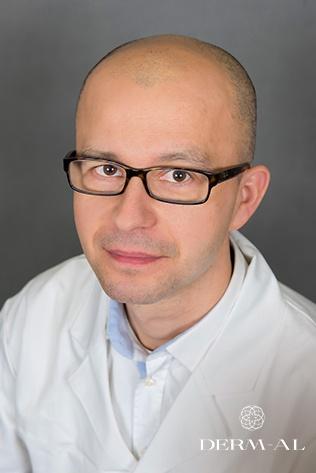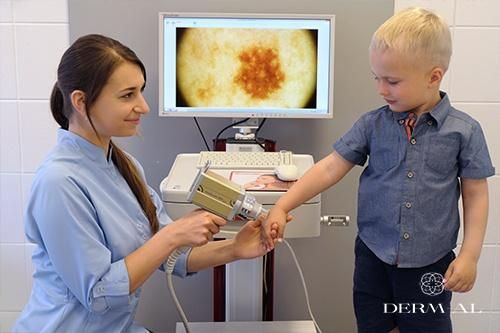The Derm-AL Centre offers radiosurgical nose conchoplasty as one of the methods of rhinitis treatment.
Rhinitis is persistent inflammation of the mucous membrane. It is most often caused by bacterial or viral infections. It may also be caused by inhaled allergens, such as pollen, dust mites, animal fur or fungi. It may also be associated with hormonal changes or be a side effect of certain medications, and it very often results from overusing nose drops.
Rhinitis, persistent inflammation of the mucous membrane, may develop in different ways. It may cause enlargement of the mucous membrane (swelling, polyps) or - to the contrary, its disappearance. If not treated, it may cause numerous complications, e.g. eardrum inflammation, airway obstruction, ventilation disorders or loss of the sense of smell.
If rhinitis is accompanied by mucous membrane enlargement, one possible medical treatment, apart from pharmacological, is by surgical reduction of excess mucous membrane in nasal concha and stimulating its regeneration.
Conchoplasty is a radiosurgical method
It is performed by the laryngologist in local anaesthesia (similar to dental anaesthesia). An electrode emitting radio waves is inserted in the nasal concha. The power and duration of the electrode are adjusted to the patient’s specific needs. The electrode causes local coagulation of tissue, thus reducing the concha. In the first days after the treatment, the patient may feel worse due to swelling of the tissue. However, the swelling is only temporary and the obstruction subsides as the mucous membrane reduces. The full effect is achieved approximately 2 weeks after the procedure.
Before the procedure, it is necessary to consult the laryngologist who will be performing the procedure. Consultation is also required if a patient has a referral for radiosurgery from another physician.






